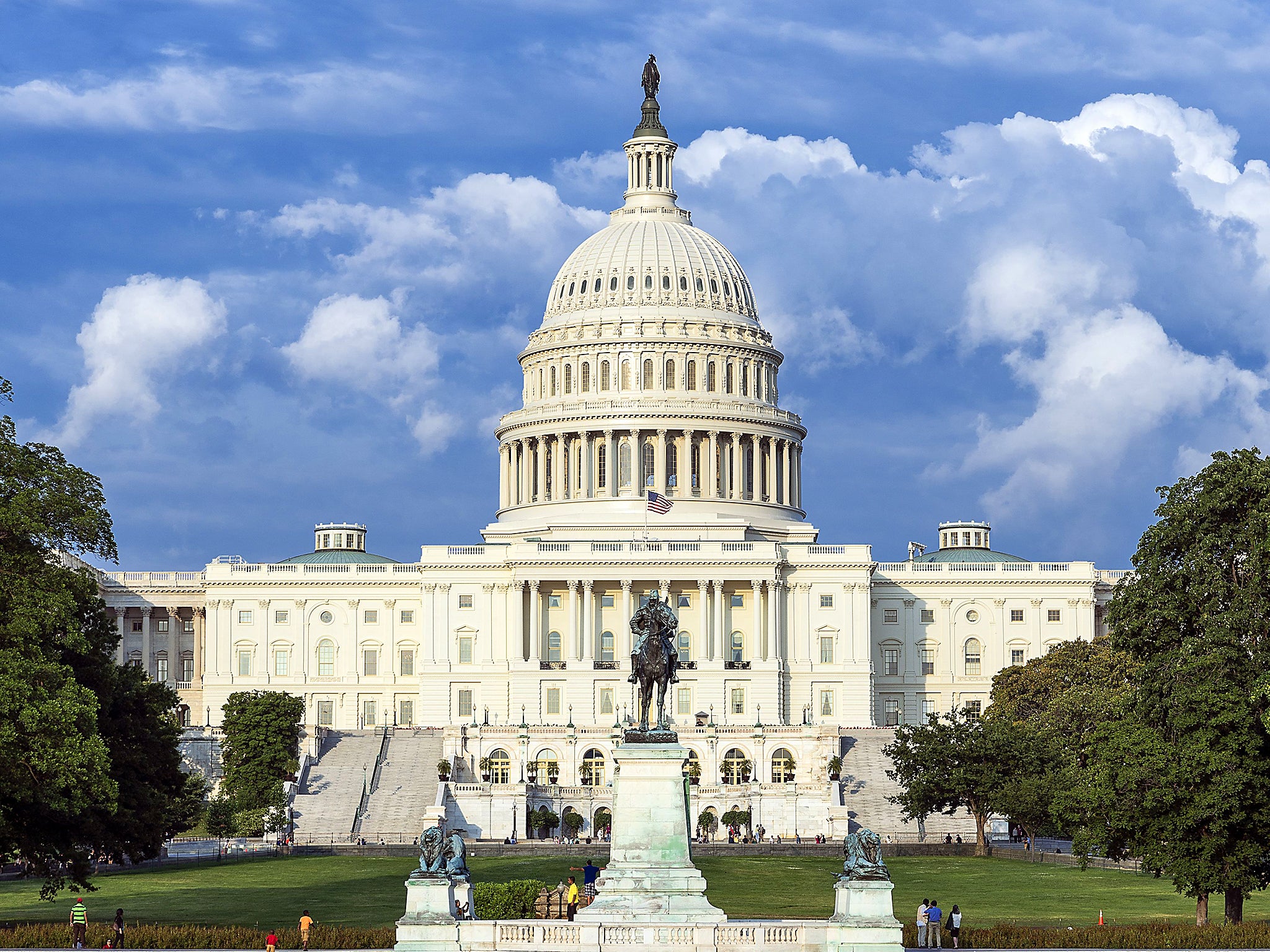US Congress could remove Donald Trump from office without impeaching the President
Yale students Samuel Breidbart and Vinay Nayak say lawmakers can appoint a special body to determine whether he is fit to serve
Two students at a top US law school have claimed it is possible for Congress to remove Donald Trump from office without impeaching him due to a little known clause in the Constitution.
Samuel Breidbart and Vinay Nayak argued in a piece for Time magazine that under Section 4 of the 25th Amendment which allows Congress to form its own body to evaluate the President’s fitness for office without impeaching him.
The clause says: "Whenever the Vice President and a majority of either the principal officers of the executive departments or of such other body as Congress may by law provide transmit to the President pro tempore of the Senate and the Speaker of the House of Representatives their written declaration that the President is unable to discharge the powers and duties of his office, the Vice President shall immediately assume the powers and duties of the office as Acting President".
They argue the phrase "[an] other body as Congress may by law provide" means the House has the power to appoint an independent body to assess whether the President is fit for office.
The 25th Amendment was originally adopted in 1967 and establishes the procedure where by the Vice-President succeeds the President if he or she is incapacitated, dies in office or impeached.
The law, which came four years after the assassination of John F Kennedy and his replacement by Lyndon B Johnson, replaced the vague wording in Article 2 of the Constitution from when it was first came into force in 1789 which did not set an order of succession into law.
Although some have suggested Mr Trump will not serve his full four year term he is still unlikely to be impeached as both Houses of Congress, which have to vote to remove him, are controlled by Republicans.
No US President has ever been successfully impeached. In 1974 Richard Nixon resigned before he could be formally removed. Andrew Johnson and Bill Clinton were both impeached but neither was convicted of the charges filed against them.

The only other times impeachment proceedings have been started in US history is when the Senate refused to impeach Bill Clinton over the Monica Lewinsky scandal in 1999 or Andrew Johnson for firing his War Secretary without Congressional approval in 1868.
In recent weeks, as the prospect of impeachment has receded, much had been made of Section 4 because it potentially allows the Vice-President and a majority of the Cabinet to send a letter to Congress saying the President is “unable to discharge the powers and duties of his office”.

But Mr Breidbart and Mr Nayak, who are both in their first year at Yale Law school, say this is highly unlikely as Mr Trump could remove them before they could do anything if he believed they posed a threat.
Instead they said there are two ways that Congress can force Mr Trump out of office.
One way would be to appoint a panel of independent medical practitioners to judge the health of US presidents.
They say: “Former president Jimmy Carter has been a strong advocate for this approach, noting the advanced age and poor health of many U.S. presidents.
“Since the 1990s, Carter has expressed particular concern about the conflict of interests faced by the personal physicians to the President, who might otherwise be tasked with making a determination about medical fitness.”
He said the doctors were often very close to their President and may be willing to play down health issues to help their friends – his own physician was also his tennis partner during his administration.
The other way would be for Congress to appoint a body with no medical expertise because the 25th Amendment’s wording was purposefully left vague to allow the House to decide how to interpret the criteria for the President being “unfit to serve” itself.
If it decided Mr Trump was unable to be trusted with classified information by intelligence agencies, for instance, it could deem him “unable to discharge the powers or duties of his office”.
Despite Mr Trump’s noticeably erratic behaviour over the past few months, which prompted 35 mental health professionals to write an open letter to The New York Times saying he showed signs of “grave emotional instability”, this is still unlikely.
Mr Breidbart and Mr Nayak say it is likely that they will have to get the sign off of the Vice President Mike Pence and will need to get a super majority – two thirds approval – in both houses in order to override a presidential veto.
But they argued it may be enough that Congress has this power to hold over Mr Trump’s head to force him to behave.
Join our commenting forum
Join thought-provoking conversations, follow other Independent readers and see their replies
Comments
Bookmark popover
Removed from bookmarks